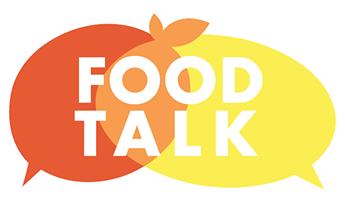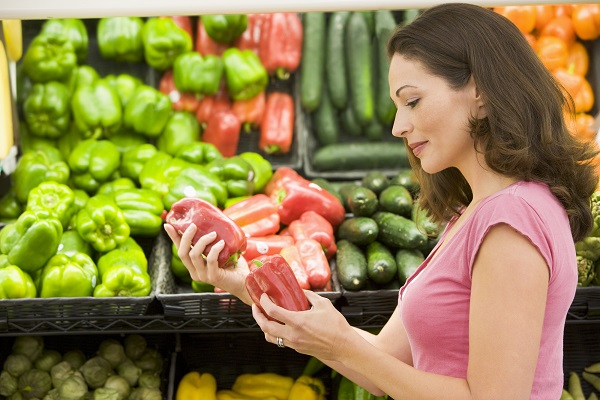There is an abundance of food on the market, but the labels can get confusing. “Organic” is a term used often. Is organic food healthier or safer for your family? Let’s learn more!
When you see the word “organic” on a food item, did you know that it is simply telling us about the farm it’s from? There’s a lot of fear around what produce is safest and healthiest for our families. We’re here to help!
Long story short: All the food in our stores is regulated by law and safe to eat, but it is not all farmed the same way. If you’re curious about why, read on!
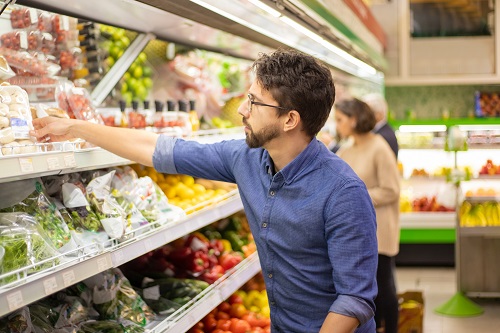
What Does “Organic” Mean?
We use the word “organic” to describe things that come from nature: Things grown in the ground or put back in the ground.
The word “organic” is set by the U.S. Department of Agriculture (USDA). The USDA is the group that handles most of our nation’s food supply. This includes how food is grown and packaged before it gets to us. If something has the USDA Organic label, it means the farmer followed all the rules for calling their food organic. They also must pay for this special certification. [1]
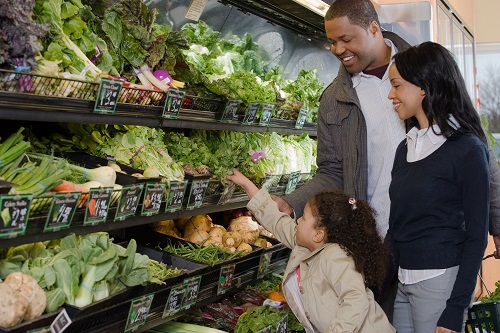
How Do Farms Become Organic Farms?
Organic farming focuses on promoting a healthy balance with nature. It takes up to 3 years for a farm to become certified as organic! This is because the soil needs time to meet the USDA Organic rules. [2] If you see meat or poultry that is organic, this means that the farmers raised their animals on USDA organic rules. [3] Many people choose to purchase organic items because of these standards!
Organic farms use different ways (methods) to keep harmful pests and weeds away from their crops. This includes preventative care, what seeds they use, and their commitment to traditional farming methods. They tend to stay away from most products we’d find in a garden center, but they have a list of allowed products, too. [4]
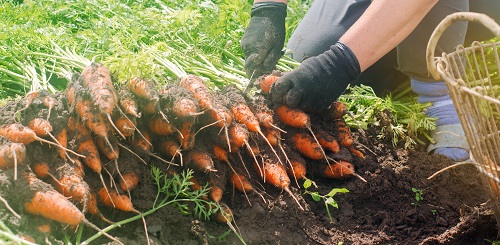
Common Questions About Organic and Non-Organic Produce
1. Why is organic food more expensive?
Pest and weed control can be more expensive for an organic farmer, so their farms tend to be smaller. Compared to non-organic farming, organic farms can’t harvest as much food per acre of land.
All the work that goes into producing organic food is part of the reason why organic options are more expensive in the store. [5]
2. Is organic food safer for me and my family to eat?
No. The USDA also makes standards about non-organic foods. They work hard to make sure that all food is safe for us to eat! This means that all animals and plants that make it to stores meet similar standards for food safety and quality. Non-organic farmers still follow rules from the USDA to promote a healthy environment. [6]
You may choose organic options if your views align with their environmental goals and you can afford it—or if it’s on sale! Overall, there is no evidence that either food is less safe to eat. [7]
3. Does organic farming use pesticides and herbicides?
Yes and no. Farms control for weeds and pests in a variety of ways. There is a list of approved pesticides and herbicides—including some of the same treatments approved for non-organic farms! [2]
When possible, both types of farms will use other ways to protect their crops before they have pests. This includes choosing pest-resistant crops and covering the soil. However, both farms can be approved to use safe amounts of pesticides and herbicides. Organic food is not always pesticide-free, but properly applied pesticides should not harm humans by the time food gets to our homes. [8]
4. Should I be worried about pesticides on my produce?
No, but be sure to rinse all fruits and vegetables under running water before eating or cooking them. This guidance from the FDA is for all food, no matter how it was grown! Rinsing produce will remove the small amounts of pesticides left from the farm and bacteria that can cause foodborne illness. [9]
According to the FDA and Cooperative Extension, no need to use soap, detergent, or produce washes! These have not been tested for safety on produce and might change the flavor of the food. For tips on washing produce, check out these 7 Tips for Cleaning Fruits and Vegetables from the FDA.
5. Is organic food healthier?
No, there is no clear difference between the nutrients found in organic and non-organic foods. Scientists do not currently think that either farming method offers a health benefit over the other. [10] [11]
6. If it isn’t safer or healthier, then is there any benefit to eating organic?
It depends! If you are purchasing organic food from the farmer’s market, you are supporting your local economy. You are also reducing the distance the food traveled. That might be important to you! To find a farmer’s market near you, check out Food Talk’s SNAP-Ed Food Resource Map.
If you know a farmer who runs an organic farm, you are supporting them, so that is another benefit! If you agree with the USDA Organic farming practices, then buying organic food will allow farmers to supply more food. Make the decision based on what is financially best for your family.
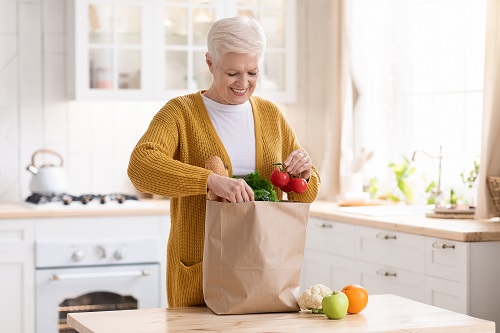
Bottom line
If the farming practices line up with your views, you may choose to buy organic food when your budget allows. However, organic and non-organic options are both safe to eat and nutritious. The term “organic” should not be used as a health claim or to scare you away from non-organic foods. The main focus should be feeding your family plenty of fruits and veggies—regardless of how they are grown!

Looking for ways to add more fruits and vegetables to your family’s meals? Take a scroll through our recipe page here.
Written by Melanie Ng, Ph.D. Student | Edited by Leslie Davis, MS, RD, LD, CDCES and the Nutrition Education Team
Posted: February 22, 2021
[2] USDA – Introduction to Organic Practices
[3] USDA – Organic Livestock Practices
[4] USDA – Organic Farming Allowed Substances
[5] NOFA VT – Certified Organic Brochure for Farmers
[8] EPA – Pesticide Regulations in Crop Production
[9] Colorado State University Extension – Washing Produce
Be Creative Drink Water Focus on Health How to Cook Better Invite Your Kids Plan Ahead Save Money Shop Smarter Store Food Uncategorized